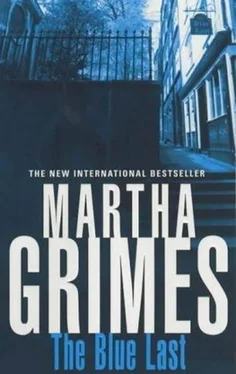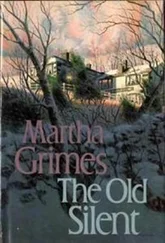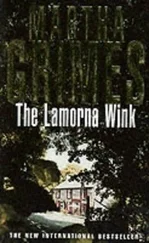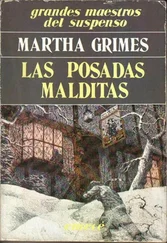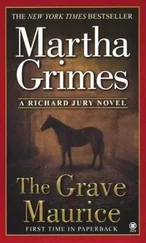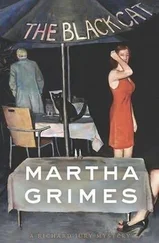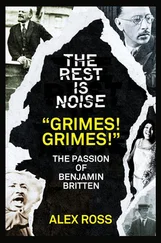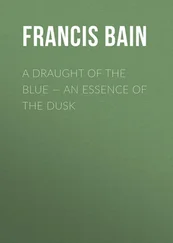Martha Grimes - The Blue Last
Здесь есть возможность читать онлайн «Martha Grimes - The Blue Last» весь текст электронной книги совершенно бесплатно (целиком полную версию без сокращений). В некоторых случаях можно слушать аудио, скачать через торрент в формате fb2 и присутствует краткое содержание. Жанр: Детектив, на английском языке. Описание произведения, (предисловие) а так же отзывы посетителей доступны на портале библиотеки ЛибКат.
- Название:The Blue Last
- Автор:
- Жанр:
- Год:неизвестен
- ISBN:нет данных
- Рейтинг книги:3 / 5. Голосов: 1
-
Избранное:Добавить в избранное
- Отзывы:
-
Ваша оценка:
- 60
- 1
- 2
- 3
- 4
- 5
The Blue Last: краткое содержание, описание и аннотация
Предлагаем к чтению аннотацию, описание, краткое содержание или предисловие (зависит от того, что написал сам автор книги «The Blue Last»). Если вы не нашли необходимую информацию о книге — напишите в комментариях, мы постараемся отыскать её.
The Blue Last — читать онлайн бесплатно полную книгу (весь текст) целиком
Ниже представлен текст книги, разбитый по страницам. Система сохранения места последней прочитанной страницы, позволяет с удобством читать онлайн бесплатно книгу «The Blue Last», без необходимости каждый раз заново искать на чём Вы остановились. Поставьте закладку, и сможете в любой момент перейти на страницу, на которой закончили чтение.
Интервал:
Закладка:
“Too damned long,” said Mickey, who indicated a chair for Jury before reseating himself. “How’re you keeping, Rich?”
“Fine.” This sort of exchange would have been banal between most people, but not with Mickey on the other end of it. He genuinely wanted to know. They talked for a minute about Liza and the kids, and then Jury slid the file he’d brought across the desk to Mickey. “Looks like a dig. This is a case you’re working on? Was I supposed to come up with some helpful response? I don’t know much about forensic anthropology-”
Mickey was shaking his head. “I only wanted you to see the file so you’d have a better idea of what I’m talking about. Yes, it’s a case I’m working on. Me, personally. Say it’s unofficial business. Or say I don’t really want anyone to know about it. It’s personal.” He turned one photograph around. In the center of the rubble were two skeletons.
At least, Jury made out what he thought were two. “What is this, then, Mickey?”
“Skeletons recovered from a bomb site.”
“Bomb site? Where?”
“Here. In the City. Near Ludgate Circus. If you want to see it, it’s not far from St. Paul’s, on a street called Blackfriars Lane.” Mickey drew a little map and passed it over. “The last bomb site in London.”
Jury’s eyebrows went up a notch higher, in question.
“The war. You know. The Second World War?”
Jury’s smile did not reach his eyes. “I’ve heard of it, yes.”
Mickey picked up a cigar that had been smoldering in a large blue ashtray to his right. When Mickey exhaled, Jury tracked the smoke. He hadn’t had a cigarette in nearly two years, but his need for one hadn’t abated. It infuriated him. He smiled. “So go on.”
From another folder, Mickey took another report. “Two skeletons recovered at the site.”
“What are you reading?”
“From the anthropology people at the University of London. They took the skeletons to do a study. They were, naturally, interested. For all they knew, these remains could have been ancient remains.”
“But they weren’t?”
Mickey shook his head. “Skeletons of a female, early twenties, a baby not more than a few months, probably two or three.”
“They can fix it that closely? In a baby? But the bones are still forming.”
“Teeth. They can even fix the development of a fetus by teeth. The teeth form underneath the gums. These were the only skeletons recovered. The bomb site was where a pub once stood; it was demolished in the blitz. That was back in 1940. Specifically, December 29, 1940. The site’s been bought up by a developer. There’s construction going on now.”
Jury sat back and said nothing. He had never been able to reflect upon the war without considerable pain. But his intense feelings about that time made it, ironically and uncomfortably enough, magnetic.
Mickey picked up the cigar from the ashtray and smoked. And thought.
It was one of the things Jury liked about him: he was a meditative man. Like Jury himself, he did not jump to conclusions; yet at the same time, he acted on instinct. Jury knew it was difficult to do both. He recalled sitting in a pub with Mickey when they were working a case nine or ten years ago and not a word passed between them for ten minutes. Mickey reminded Jury of Brian Macalvie; they both drove their crime scene people mad with their extended silences.
The station house was oddly quiet. They might have been visiting a memorial. “Who found the remains?”
“Construction crew. They didn’t disturb them.” Mickey turned the photograph of the two skeletons around so Jury could see it. “What’s your off-the-wall guess?”
“It looks as if the baby’s skeleton was lying close to the adult’s-the mother?”
“I’ll tell you a little story.” Mickey had opened his desk drawer and taken out a handful of snapshots, old ones in black and white. He took the one off the top and shoved it toward Jury. “This was taken in Dagenham. It was at the beginning of the evacuation, in 1939. Children who were taken by boat to one of the trains bound for the country.” Mickey pushed over two more snapshots. “These were taken in Stepney. Evacuation again. My dad used to talk about the unearthly quiet. All those children and hardly a peep out of them.”
Jury looked at the band of children, at the gray, unsmiling faces of the mothers.
“That was the exodus in forty, during the so-called phoney war, when London prepared for war, but nothing really happened.”
Jury hated talking about the war. And what were all of these pictures in aid of? What was the point?
Mickey was pushing yet another snapshot toward Jury. “Right here, I think, are the woman and the child who ended up in the rubble. Alexandra Tynedale, twenty-one or -two, and a baby of maybe four months. Not, however, her own baby. The nanny had taken Alexandra’s baby out to get some air.” Mickey spun another photo to Jury’s side of the desk. “This is that baby now: Maisie Tynedale.”
Jury looked at the photo. She was attractive, early fifties, he guessed, but from calculating the passing years rather than her looks. She could have been forty, judging by the picture. This was a better picture than the others, taken by a camera superior to the one that had taken the snaps. Jury set it down. He now had five pictures lined up before him. “These two of the evacuation-what about them? What’s the story?”
In answer, Mickey pushed over another snapshot. It showed a young woman, back to the camera, face turned to smile down at a baby whose round little chin was propped on the woman’s shoulder, arm and hand flat against the woman’s back. Jury lined that up in the row, number six, and simply looked the question at Mickey.
“Kitty, the nanny. Katherine Riordin and baby Erin.”
Like a card dealer, Mickey flicked another snapshot over. A shot of demolished buildings, red brick blown to bits. A few people were making their way through the rubble. Jury said, “I expect scenes like this must have duplicated themselves thousands of times all over London. I really hate this, Mickey. Both my parents died in this war.”
“Sorry, Rich. There is something-”
Jury looked at him thoughtfully. “Something wrong, Mickey?” He thought he actually saw tears forming in the other man’s eyes. Maybe not. “Listen, I’m in no hurry. But where is this?” He held up the shot of the blasted building, the all-but-leveled street.
“What I was telling you before. That’s the pub-was the pub-owned by Francis Croft. Here’s one taken while it was still standing. The Blue Last, it was called. Those two in front of it are Alexandra Tynedale Herrick and Francis Croft. Christmas lights around the door, so it must have been a very short time either before or after this picture was taken. Francis Croft was the business partner and best friend of a man named Oliver Tynedale, Alexandra’s father. They’d been friends since childhood. Francis is dead, but Oliver is still alive. Amazing, since he must be ninety. They were like brothers, he and Croft.”
“The nanny’s-Kitty Riordin’s-baby was killed, too; her name was Erin. Kitty was an Irish girl, came over here, as did thousands of poor Irish girls, looking for work and her husband. He’d just walked out on her, apparently. Alexandra took her on as a child keeper for Maisie. Kitty’s baby, Erin, was the same age as Alexandra’s, a few months old.” He sighed and ran his hand across his hair, roughing it up, as if that would improve the thought process.
Jury sat back. “Tynedale. Of Tynedale Brewery? One of the biggest in the country?”
“Both of them actually owned it. Tynedale and Croft.”
“Francis Croft must have been pretty down to earth if he was part of the Tynedale empire and was still landlord of a pub.”
Читать дальшеИнтервал:
Закладка:
Похожие книги на «The Blue Last»
Представляем Вашему вниманию похожие книги на «The Blue Last» списком для выбора. Мы отобрали схожую по названию и смыслу литературу в надежде предоставить читателям больше вариантов отыскать новые, интересные, ещё непрочитанные произведения.
Обсуждение, отзывы о книге «The Blue Last» и просто собственные мнения читателей. Оставьте ваши комментарии, напишите, что Вы думаете о произведении, его смысле или главных героях. Укажите что конкретно понравилось, а что нет, и почему Вы так считаете.
